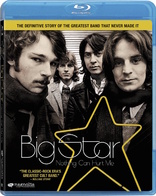Big Star: Nothing Can Hurt Me Blu-ray Movie
HomeBig Star: Nothing Can Hurt Me Blu-ray Movie 
Magnolia Pictures | 2012 | 111 min | Rated PG-13 | Nov 26, 2013Movie rating
7.4 | / 10 |
Blu-ray rating
| Users | 0.0 | |
| Reviewer | 3.5 | |
| Overall | 3.5 |
Overview
Big Star: Nothing Can Hurt Me (2012)
A documentary about the massive critical acclaim, dismal commercial failure, and enduring legacy of pop music's greatest cult phenomenon, Big Star.
Starring: Alex Chilton, Jody Stephens, Andy Hummel, Chris Bell (II), Lenny KayeDirector: Drew DeNicola
| Documentary | Uncertain |
| Music | Uncertain |
Specifications
Video
Video codec: MPEG-4 AVC
Video resolution: 1080p
Aspect ratio: 1.78:1
Original aspect ratio: 1.78:1
Audio
English: DTS-HD Master Audio 5.1 (48kHz, 24-bit)
Subtitles
English SDH, French, Spanish
Discs
50GB Blu-ray Disc
Single disc (1 BD)
Playback
Region A (B, C untested)
Review
Rating summary
| Movie | 3.0 | |
| Video | 4.0 | |
| Audio | 4.0 | |
| Extras | 3.5 | |
| Overall | 3.5 |
Big Star: Nothing Can Hurt Me Blu-ray Movie Review
Big Star or Small Supernova
Reviewed by Michael Reuben November 27, 2013A documentary about a failed music group labors under the obvious disadvantage that most viewers won't recognize any of the songs. The situation is reminiscent of the opening of Amadeus, where the elderly Salieri hums several of his compositions to the priest who has arrived to comfort him—and draws a blank. But as soon as the aged composer hums a theme from Mozart, the priest's eyes light with recognition. A film about the Beatles or David Bowie would have the same effect even on non-fans, but Drew DeNicola's film about the short-lived rock group Big Star has to engage viewers dramatically. Although Big Star was well-received by rock critics and developed a cult following that included numerous musicians who later become successful in their own right, the band's music never achieved popular success. As with many cult filmmakers, their greatest success has been indirect, by way of influence on other entertainers. Even when the band was revived in 1993, with a modified lineup, it never established the kind of presence for which its original founders had hoped, although it did continue to perform sporadically until 2010.
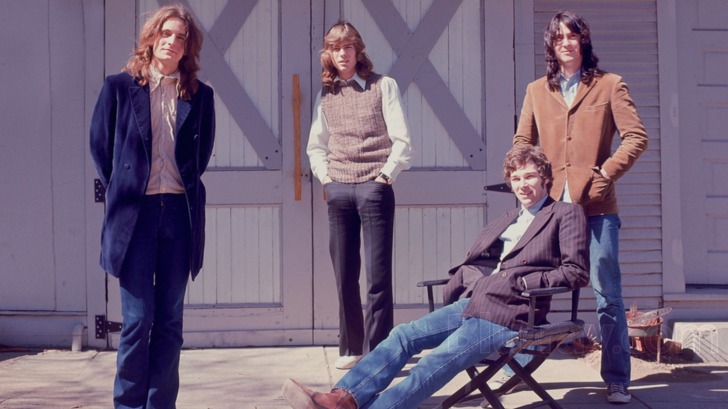
DeNicola's film is an elaborate mosaic assembled from various sources, including contemporary interviews and archival footage from multiple eras. Some of the material is audio only, and the editing team has accompanied it with carefully chosen photographs, often brought to life by digital manipulation. Founded in 1971, Big Star grew out of the thriving music scene in Memphis, Tennessee, where every kid who grew up in the Sixties wanted to be Elvis or the Beatles. Its home was Ardent Studios, founded by John Fry, who is a major participant in the film. Ardent was noted for its connection with the legendary Stax Records, for which it often served as the "overflow" facility. Sam and Dave, Led Zeppelin and Isaac Hayes were among the major acts who recorded there. Of the four founding members of Big Star, only guitarist and vocalist Alex Chilton had prior experience as a professional musician. A musical prodigy, Chilton had spent three years with The Box Tops, whose number one single, "The Letter", still shows up in compilations from the era. But Chilton had less interest in being a "star" than in developing his own sound, and he gave up commercial opportunities to return to Memphis and form his own band. Still, because Chilton's was the most familiar name in the group, when the band's first album, entitled #1 Record, received rave reviews, it was Chilton whom the critics singled out. This disproportionate focus created tension within the band that helped speed its demise. Another gifted musician was Chilton's friend, guitarist Chris Bell. Both had spent worked at Ardent studios, and Chilton suggested they form a duo, emulating Lennon and McCartney as songwriters and Simon & Garfunkel as performers. But Bell had already formed a band called Icewater with drummer Jody Stephens and bass player Andy Hummel. Chilton was sufficiently impressed by Icewater's sound to expand his horizons, and Icewater's lineup, plus Chilton, became the original Big Star. The band's name was taken from a supermarket directly across the street from Ardent's location at the time. #1 Record was created in the spirit of innocent enthusiasm that often characterizes a music group's early work, when there are no outside pressures and the musicians can concentrate on their work without distractions. Other considerations began to impinge as soon as the album was released to unanimous acclaim in 1972. First of all, the distribution was poorly handled, so that potential fans who read about the album or heard cuts on the radio could not find copies to buy. Perhaps more important, Bell greatly resented the attention paid to Chilton and the short shrift he believed his own work received. A moody individual subject to bouts of depression and prone to drug use, Bell quit the band shortly after the release of #1 Record. Chilton, Hummel and Stephens continued to work together, cutting a second album called Radio City, which included a few songs by Bell and was released in 1974. By then, however, Hummel too had quit the band, believing it to have no future and eager to finish college and lead a more "normal" life. Hummel's instinct proved to be sadly accurate, when Columbia Records, which had assumed control of the Stax record catalog, refused to mount any meaningful marketing campaign for Radio City. It sold only slightly better than #1 Record. Undaunted, Chilton and Stephens returned to Ardent and produced a third album in 1975, entitled Third/Sister Lovers, using additional musicians as session players. A small number of copies were pressed for promotional purposes, and those critics who reviewed the album raved over it. But it was never properly released, because the property became caught up in the bankruptcy of Stax Records. By this point, Big Star seemed to be cursed. Chris Bell died in a car accident in 1978, He had explored alternative musical paths in a solo career, and he had plunged into Christianity as a potential cure to his drug problems. In time, he might even have found his way back to his former bandmates in Big Star, but no one will ever know. The remaining three members went their separate ways until 1993, when Chilton and Stephens reformed the band with a new bass player (Ken Stringfellow) and guitarist (Jon Auer) and began playing their old material at concerts and festivals. The reformed band released a new album, In Space, in 2005. Much of the impetus for the reformed band was the emergence of successful acts that cited Big Star as a formative influence, including R.E.M., Cheap Trick and the Posies. Hummel never returned to the band, dying of cancer in 2010. Chilton died the same year of heart-related issues. Stephens, the band's original drummer, is currently the only living member. DeNicola recounts this tale with flair, and he has the benefit of lengthy interviews with Hummel, filmed before his death, Stephens, taped recently, Chilton, interviewed on the radio after the band was reformed, and Bell's family. Many current and former Ardent executives and engineers also made themselves available. Indeed, the film is blessed with so many participants that it's often hard to remember who's who, and the only criticism I had was that the names should have been displayed on-screen more often, just to remind the viewer of this or that speaker's connection to the story.
Big Star: Nothing Can Hurt Me Blu-ray Movie, Video Quality 
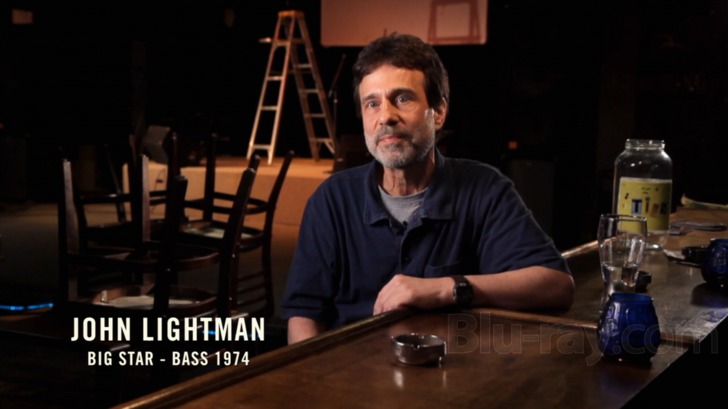
Director DeNicola served as his own cinematographer for Big Star on those segments where he created footage by interviewing subjects anew. Much of the film consists of archival material of varying quality, from old 8mm and 16mm film to early SD video. Despite obvious attempts at cleanup and enhancement with today's digital tools, much of the older material will never look anything but rough and grainy, and it is presented as best as it can be on Magnolia Home Entertainment's 1080p, AVC-encoded Blu-ray. The contemporary interviews have the clear, smooth, detailed look of modern HD video. High-resolution still photographs are well-reproduced and provide the best images of Big Star in its brief heyday. As is its custom, Magnolia has not tried for the tightest possible compression. The average bitrate is just under 35 Mbps, and while some of the source materials may be full of analog artifacts, the compressionist has not added any new digital ones.
Big Star: Nothing Can Hurt Me Blu-ray Movie, Audio Quality 
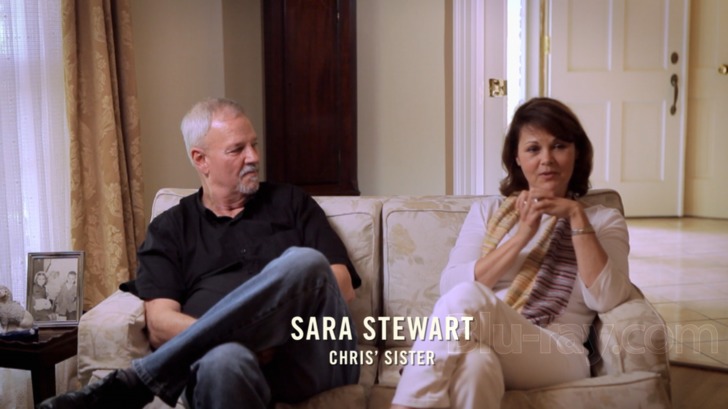
As is usually the case with documentaries, the emphasis of the DTS-HD MA 5.1 track is on the spoken comments of the interviewed commentators, who are always heard from the center speaker. Some of the archival audio, particularly that of Alex Chilton's interview, has been enhanced as much as possible but still requires added subtitles (non-switchable) for clarity's sake. Wherever the source permits, however, the dialogue between interviewer and interviewee is perfectly clear. No original music has been composed for Big Star. The soundtrack uses excerpts from the band's albums instead of a score, as well as a few other songs appropriate to the period and the locale.
Big Star: Nothing Can Hurt Me Blu-ray Movie, Special Features and Extras 
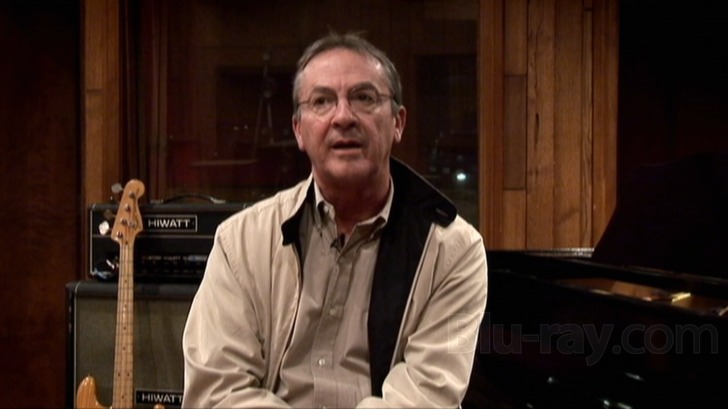
- Deleted Scenes (720p; 1.78:1): All of these scenes relate to Big Star's limited touring experiences. As described at one point in the documentary, one of the factors that may have contributed to the band's early breakup was the lack of an intensive bonding experience on the road, which often helps forge a group's identity. (A "play all" feature is included.)
- Tour 1972 (2:19):
- Max's Kansas City 1973 (3:45)
- Tour 1974 (4:27)
- Chris Bell (720p; 1.78:1; 18:33): From what appears to be various outtakes, the director and editors have constructed a more detailed portrait of Big Star co-founder Bell, including his talent, his frustrations and his subsequent embrace of Christianity.
- Alex Chilton (720; 1.78:1; 24:10): Also built from outtakes, this portrait of co-founder Chilton focuses on the period after Bell left the band in frustration, as Chilton sought a new direction for Big Star and his career.
- Big Star in the Studio (720p; 1.78:1; 15:14): At Ardent Hill, John Fry and engineer Adam Hill review Big Star master tapes, and Fry recalls Big Star working in the studio. Various other participants in the main documentary also share their recollections.
- Theatrical Trailer (1080p; 1.78:1; 2:22): The trailer is well cut to provide an overview of the film's narrative arc.
- Also from Magnolia Home Entertainment: The disc includes trailers for Good Ol' Freda, Blackfish, A Hijacking and Prince Avalanche, as well as a promo for AXS TV. These also play at startup, where they can be skipped with the chapter forward button.
- BD-Live: As of this writing, attempting to access BD-Live gave the message "Check back later for updates".
Big Star: Nothing Can Hurt Me Blu-ray Movie, Overall Score and Recommendation 
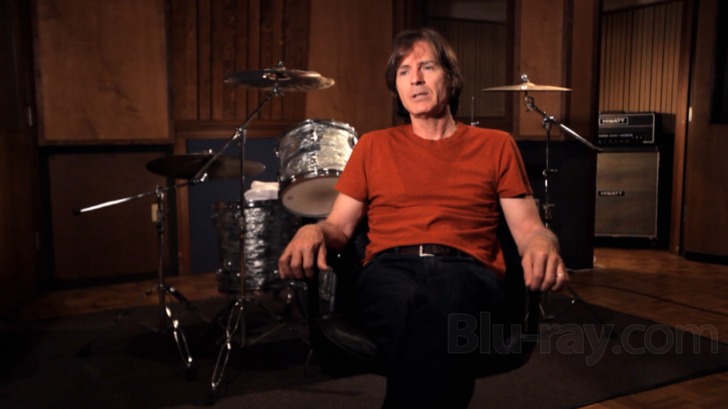
It's intriguing to contemplate whether Big Star would have attained the level of influence for which it is now credited if it had been even modestly successful with those early albums. Many pop groups achieve currency for a brief period, then fade quietly away. Regardless of the quality of Big Star's output, its reputation was surely fed by the sheer rarity of its albums for many years (a condition described in detail by various interviewees). Then again, that rarity may have prompted fans to listen more closely if and when they finally obtained a copy. Nothing commands our attention like a scarce commodity. DeNicola has done a thorough job of assembling the story of how Big Star achieved a special kind of notoriety while their work remained hard to find. Recommended for the story. If you want to explore the music, you'll have to acquire the remastered recordings available on CD and for purchase as mp3.
Similar titles
Similar titles you might also like

Oasis: Supersonic
2016

Searching for Sugar Man
2012

History of The Eagles Parts 1 & 2
2013

Beats, Rhymes, & Life: The Travels of a Tribe Called Quest
2011

20 Feet from Stardom
2013

The Promise: The Making of Darkness on the Edge of Town
Bruce Springsteen
1977-2009

The Stone Roses: Made of Stone
2013

The Decline of Western Civilization
1981

Sound City
2013

U2: From The Sky Down
2011

Rush: Beyond the Lighted Stage
2010

The Song Remains the Same
Led Zeppelin
1976

A Poem Is a Naked Person
1974

U2: Rattle and Hum
1988

Queen Rock Montreal & Live Aid
1981

Tom Petty and the Heartbreakers: Runnin' Down a Dream
2007

Marley
with Bonus Disc
2012

20,000 Days on Earth
2014

Conan O'Brien Can't Stop
2011

Dio: Dreamers Never Die 4K
2022
